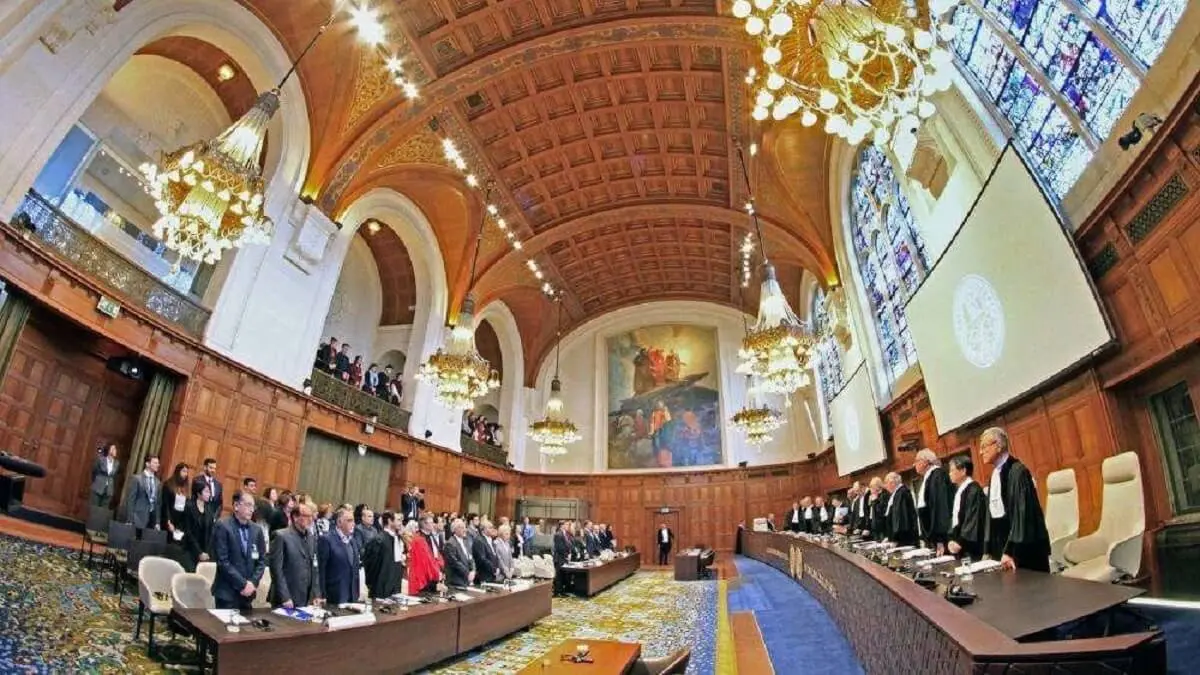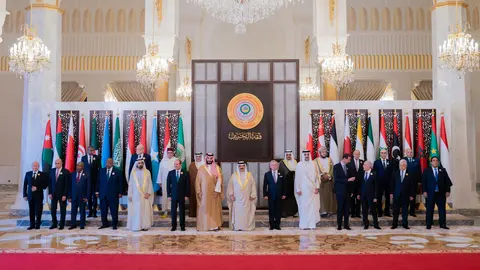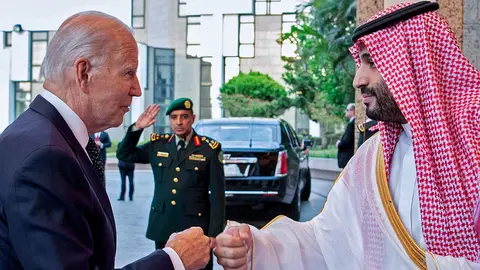What does the application for arrest warrants to the ICC against Israeli and Hamas leaders entail?

The prosecutor of the International Criminal Court (ICC) took an important step in requesting arrest warrants for senior Israeli and Hamas officials, but does this mean they will be tried in The Hague?
What happens now?
On Monday, prosecutor Karim Khan requested arrest warrants for the Israeli leadership and three Hamas leaders on suspicion of war crimes and crimes against humanity in the Gaza Strip.
Khan charged Israeli Prime Minister Benjamin Netanyahu and Israeli Defence Minister Yoav Gallant with offences including "deliberately starving civilians to death", "wilful killing" and "extermination and/or murder".
The charges against the Hamas leaders (Hamas Gaza leader Yaha Sinwar, the group's political leader Ismael Haniyeh and Hamas military strategist Mohamed Deif) include "extermination", "rape and other sexual violence" and "hostage-taking as a war crime" in Israel and Gaza.
A three-judge team must now decide whether the evidence presented is valid to issue the arrest warrants.
There is no deadline for this team to make a decision, but in general the process usually takes at least a month, although it could take longer as this is a highly sensitive case.
Iva Vukusic, an assistant professor of international history at Utrecht University in the Netherlands, said the charges are based on "reasonable grounds", which she said was "rather weak".
"I absolutely hope that the prosecutor will overcome this hurdle. They are not fools," she told AFP news agency.
"I'm sure they have prepared their bullet-proof case because otherwise it would be an embarrassment for the prosecution," she added.
Will they be arrested?
The court has no police of its own to ensure that its arrest warrants are enforced, and relies on ICC member states to comply with them.
All 124 ICC member states are technically obliged to comply with arrest warrants if the individuals concerned travel to their territories.
This could complicate travel for Netanyau and Gallant, although Israel's main ally, the US, is not a member of the ICC and would not be obliged to arrest them.
The whereabouts of Sinwar and Deif are unknown, but they are unlikely to travel abroad. Haniyeh is in exile and lives between Turkey and Qatar, two countries that are also not ICC members.
However, states do not always comply with arrest warrants issued by the ICC.
Former Sudanese leader Omar al-Bashir has managed to travel to several ICC member countries, including South Africa and Jordan, despite the existence of an arrest warrant for him.
Russian President Vladimir Putin is also the subject of an ICC arrest warrant and yet he has travelled abroad, for example to Kyrgyzstan, Saudi Arabia and the United Arab Emirates, although these are non-ICC countries.
However, Putin avoided a BRICS (Brazil, Russia, India, China, South Africa) meeting in South Africa, which could have implemented the order.
According to Vukusic, if Netanyahu or Gallant were to go to one of the EU countries, the situation would be delicate "because they are obliged to arrest them".
Is there a precedent?
Several political and military leaders have been tried for war crimes and crimes against humanity.
Former Liberian warlord-turned-president Charles Taylor was convicted of war crimes and crimes against humanity by the ICC in 2012.
Former Serbian president Slobodan Milosevic died in his cell in The Hague in 2006 while on trial for genocide at the tribunal set up for the former Yugoslavia.
Former Bosnian Serb leader Radovan Karadzic was captured in 2008 and convicted of genocide by the same tribunal. His military commander, Ratko Mladic, was arrested in 2011 and sentenced to life imprisonment.
"The judicial process is long and things that are not possible today could be possible in the future," Vukusic stressed.
What other options are there?
The ICC cannot try suspects in absentia, but it can move the case forward.
This was true in the case of Ugandan Joseph Kony, founder of the brutal Ugandan rebellion of the Lord's Resistance Army (LRA), who has been on the run from justice for almost 20 years.
In March, the ICC, set up in 2002 to try the world's worst atrocities, announced that it would hold a key hearing in October in the absence of the accused, if he had not appeared earlier, for the first time in the court's history.










